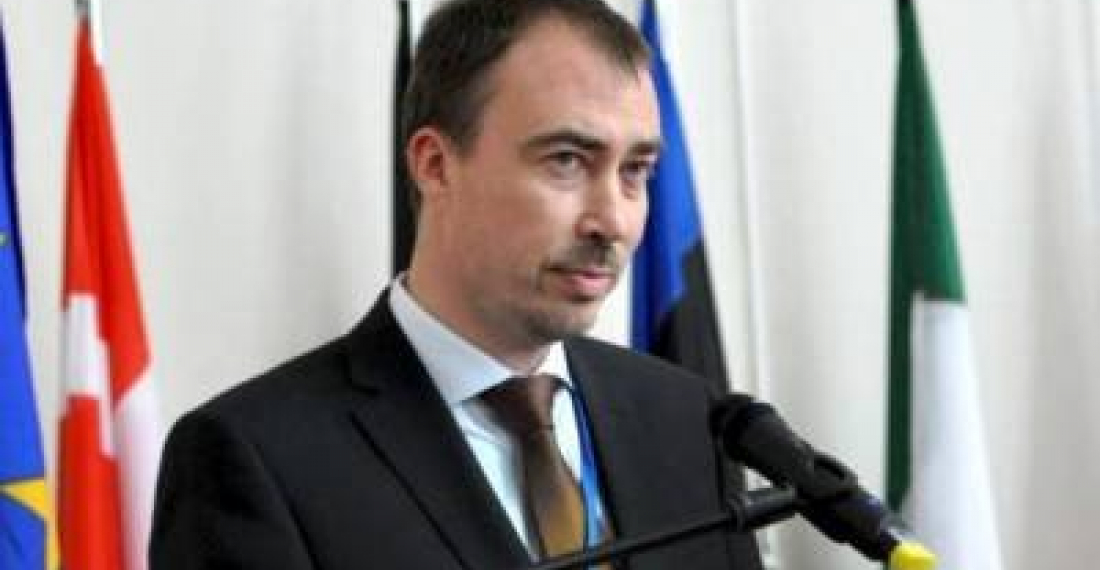On Monday, the Foreign Affairs Council, the foreign policy decision-making body of the 28 member states of the European Union (EU), formally appointed Toivo Klaar as the new EU Special Representative for the South Caucasus. He will be the fifth person to hold the post since its creation in 2002.
Toivo Klaar is an experienced diplomat having held senior positions in both the European External Action Service (EEAS), as well as the diplomatic service of his home country, Estonia. Most recently he served as the Head of the Central Asia Division at the EEAS, and prior to that as Head of the EU Monitoring Mission in Georgia.
Klaar's appointment comes at an important moment in the EU's relations with the countries of the South Caucasus, and is an expression of the EU's long-standing committment to the region and its people. Georgia is today an EU associated country and has aspirations for even closer relations The European Union has supported Georgia right from the early days after it regained independence, at that time mainly through humanitarian aid. Relations are now much more developed, and cover a wide range of political, economic and human capital issues. The Association Agreement is a ground-breaking arrangement for the Caucasus state. Its benefits are already being felt, and pro-European sentiment in Georgia is on the increase.
Relations are also developing between the EU and Armenia and Azerbaijan. With the Armenia, the EU will sign a new Comprehensive co-operation agreement shortly. A new agreement with Azerbaijan is also being negotiated. Whilst these two new agreements will not have the depth and breadth of the Association Agreement with Georgia they will also offer an opportunity for an unprecedented level of co-operation.
The EU's commitment to the three countries also extends to the issues related to the unresolved conflicts in the region. One of Toivo Klaar's responsibilities as EUSR is to chair on behalf of the EU the Geneva International Discussions on the consequences of the 2008 conflict in Georgia. Another responsibility is to contribute to a peaceful settlement of conflicts in the region, including the Nagorno-Karabakh conflict, as well as to encourage regional cooperation.
Last week in Vienna, the European Union once more reaffirmed its readiness to work to support the efforts of the co-Chair of the OSCE Minsk Process to help bring about a solution to the Nagorno-Karabakh conflict. Speaking at a meeting of the Permanent Council of the Organisation for Security and Co-operation in Europe (OSCE), the delegate of the EU to the OSCE stated:
The European Union reiterates its commitment to a peaceful settlement of the Nagorno-Karabakh, on the basis of the fundamental principles of the Charter of the United Nations and the Helsinki Final Act. It recognizes the unsustainable and dangerous nature of the status quo and calls for the development of a comprehensive peace treaty. The European Union remains mobilized, through his Special Representative in particular, to provide support to conflict resolution efforts. It is engaged as part of its program for facilitating contact between societies divided by conflict - The European Partnership for the Peaceful Settlement of the Conflict over Nagorno-Karabakh (EPNK). It remains available for setting up other confidence-building measures in support and full complementarity of the Minsk Group.
The approach of Armenia, Azerbaijan and Georgia towards the European Union differs. However the governments and the citizens in all three countries recognise that the European Union is their most important partner in their efforts to modernise their economies and their societies. The new political building blocks, in the form of the new agreements, are now starting to fall in place. This will open the opportunity for more engagement and more co-operation, something that all sides recognise as being of great importance.
The region is important for the EU as well. The South Caucasus may be on the periphery of Europe geographically, but it is of strategic importance to Europe. It is therefore quite correct that the EU remains clearly resolute in its commitment to the region. The summit of the EU leaders with the leaders of the Eastern Partnership countries in Brussels next week will provide another opportunity for this commitment to be expressed, and for all sides to show that they are willing to work together to resolve any outstanding issues and deal with challenges as they arise.
source: This comment was prepared by the editorial team of commonspace.eu
photo: The new EU Special Representative for the South Caucasus, Toivo Klaar (archive picture)







